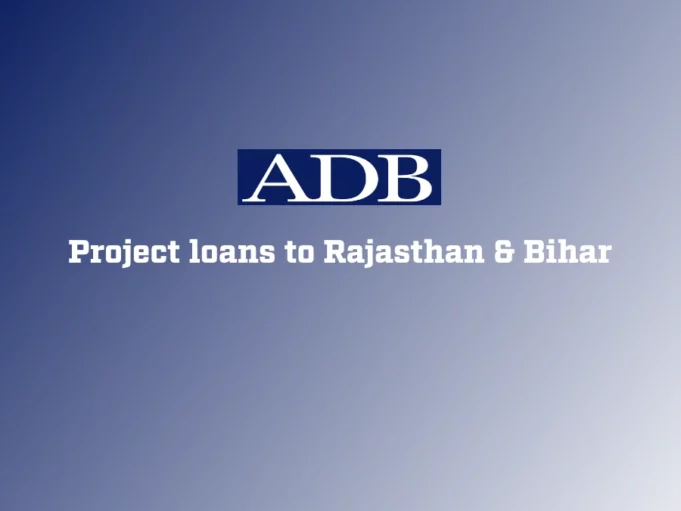$200 million support to Rajasthan
The Indian government and the Asian Development Bank (ADB) have recently signed a loan agreement of $200 million to support the ongoing Rajasthan Secondary Towns Development Sector Project. The main goal of this project is to expand water supply and sanitation systems, as well as to enhance urban resilience and preserve heritage in selected towns within the state.
Mr. Vumlunmang Vualnam, the Additional Secretary of the Department of Economic Affairs in the Ministry of Finance, represented the Government of India in signing the loan agreement. Takeo Konishi, the Country Director of ADB’s India Resident Mission, signed on behalf of ADB.
The additional financing will aid the Government of Rajasthan in its commitment to reduce basic infrastructure gaps in secondary towns. It will focus on expanding water supply and sanitation services, as well as improving the overall livability in selected urban areas.
Mr. Konishi emphasized that the project will incorporate innovative and climate-resilient solutions to expand basic urban services. Additionally, it will utilize nature-based approaches to rehabilitate heritage structures. Moreover, the project will pilot public-private partnerships in the water and sanitation sector to promote greater private sector engagement.
Since its approval in September 2020, the ongoing project has already achieved significant progress. The project has seen laying of 1,451 km of water supply pipes, 1,110 km of sewer pipes, and has connected 68,098 households to water services in selected secondary towns in Rajasthan.
With the additional financing, the project will further improve water supply systems in at least seven towns by converting groundwater sources to surface water. It will also replace around 700 km of leaking water pipes, install 1,400 km of new water supply pipelines, and provide water meter connections to 77,000 households. Moreover, three new water treatment plants will be established.
In terms of sanitation, at least eight towns will benefit from improvements, including rehabilitating at least 580 km of sewers and constructing seven sewage treatment plants. These treatment plants will include co-treatment units to process fecal sludge and septage. Additionally, at least 54,000 households will be connected to the sewage system.
A noteworthy addition to ADB’s support in this project is the focus on water facility development for urban resilience and heritage-sensitive urban development in heritage towns or towns with strong tourism potential. This includes the reconstruction of water structures with heritage value and incorporating nature-based solutions to enhance climate resilience. Furthermore, at least 20 heritage or heritage-like structures will be rehabilitated to improve the living environment and attract more tourists.
The project also aims to create a special purpose vehicle through a public-private partnership to address water security issues in Rajasthan’s manufacturing industry. This initiative will encourage private sector investments and financing. It will establish designated pipe networks to carry treated wastewater from sewage treatment plants to industrial facilities.
$295 million assistance to Bihar
In a separate development, ADB and the Central government signed another agreement for a $295 million loan to upgrade approximately 265 km of state highways in Bihar. This project aligns with the Bihar government’s program to standardize two-lane width for all state highways and enhance road safety measures. Upgraded roads will improve connectivity in Bihar’s poorest rural districts, providing better access to health and education facilities and markets.
The ADB project will also focus on enhancing the implementation capacity of the Bihar State Road Development Corporation and fortify systems with a focus on planning, road safety, and sustainability. This includes developing a road asset management system (RAMS) with climate change and disaster risk information capabilities, as well as setting up research laboratories in the Bihar Road Research Institute (BRRI) to investigate materials, including reusable and sustainable materials.
Furthermore, the project emphasizes gender-inclusive practices in road safety measures and includes training and awareness programs on road safety, health, and hygiene for women from communities in the project areas.











